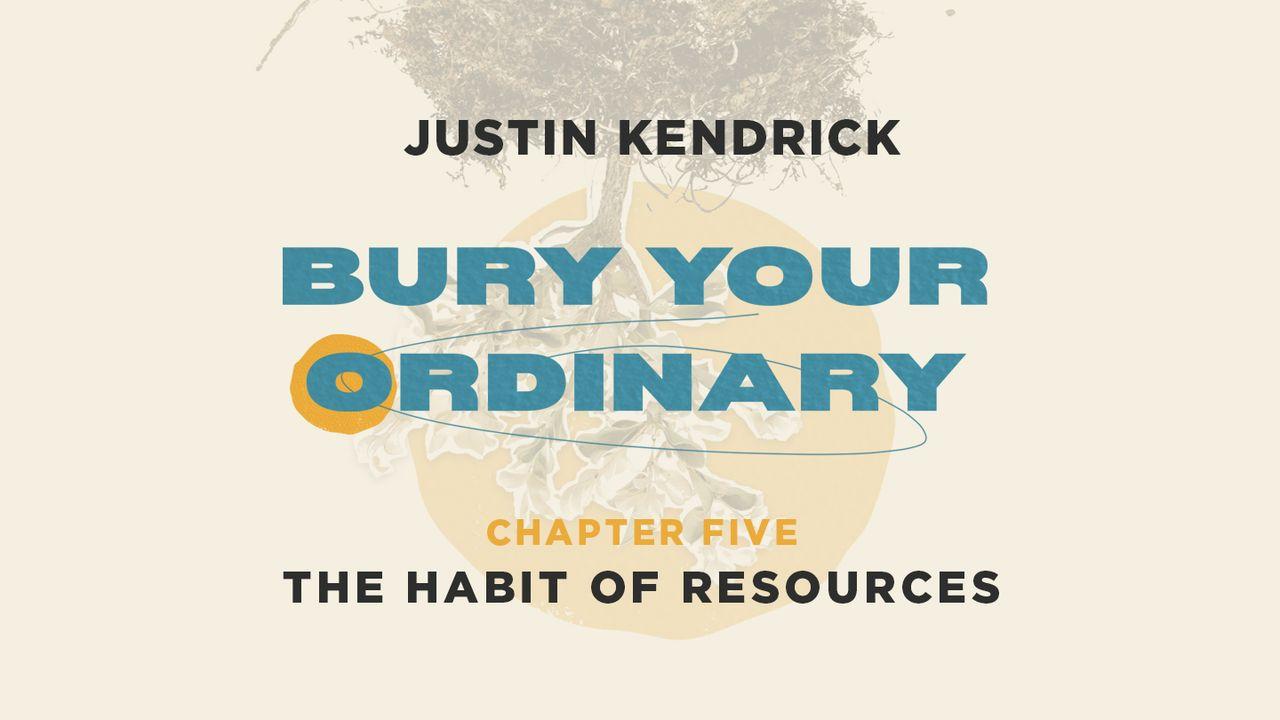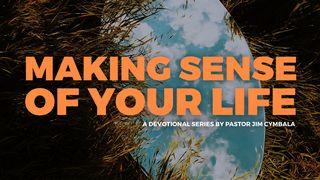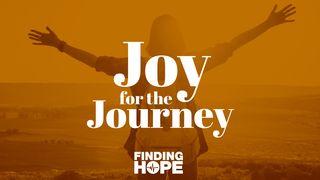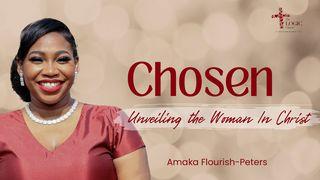Bury Your Ordinary Habit FiveSampel

Do I Really Trust?
What makes you feel secure? What makes you feel important? What gives you a sense of control? For many of us, there is one thing that informs our sense of security, our sense of worth, and our feeling of control: money.
According to Scripture, having money is not sin. Money provides certain opportunities, and it also comes with certain dangers. Specifically, the danger of money is that having it creates a false salvation: a mirage of self-sufficiency and security. In fact, people with any degree of wealth will eventually attach their hearts to their money (Mark 10:24–27).
How do we live free from unhealthy attachments to money and instead develop healthy attachments to God? The first thing we must do is change our concept of life. A concept of life is the story that informs the way you see the world. Some people see life as a race, and they are always competing against someone else. Some people see life as a journey, and they live for a new experience. According to the Bible, life is a stewardship. This means that everything you have is a gift from God: your talents, your relationships, your time, and your money. You are a steward, called by God to use your gifts for his purpose.
One of the ways God teaches our hearts to trust him rather than our money is through generosity. By giving some of what we have, our hearts learn to steward his gifts and experience the fullness of his blessing. Jesus wasn’t kidding when he said it really is more blessed to give than to receive (Acts 20:35)! By learning to give, we learn to act like God.
Scripture outlines three principles of generosity that we can use to grow our hearts and become good stewards. They are priority giving, percentage giving, and progressive giving.
Priority Giving. God teaches us to trust him by commanding us to give first (Matthew 6:33). When we give last, after all the bills are paid and the needs are met, there is no faith involved in the transaction. But when we give first, before any of our needs are met, we are making a declaration to the world and to God that he is our source, our safety, and our provider!
Percentage Giving. Generosity looks different for every person. Jesus illustrated this truth when he noticed a woman in the temple giving her last two copper coins (Luke 21:1–4). He told his disciples that she had given more than all the rich people had because she had given all she had to live on. Jesus didn’t stop her from giving—even in her poverty!
Each person must wrestle with the question “How much would I have to give in order to detach my heart from trusting in things and attach my heart fully to God?”Scripture introduces the principle of the tithe (giving 10 percent of my income) as a starting place to teach our hearts to trust him.
Progressive Giving: Like all areas in your spiritual life, God wants you to grow and stretch over time. Progressive giving means that you regularly assess your standard of living and your standard of giving, inviting God into the assessment and allowing your heart to stay in a place of dependence and faith.
This leads us to habit 5: structure your life around priority, percentage, and progressive giving.
Our hearts rarely release control without a fight, and money is a sensitive topic for many people. But if God does not have control of your money, your spiritual growth will always be stunted. As we learn to trust God and discover the truth of his principles, our hearts will move from fear to faith, and we will find the provision and freedom that come with trusting him.
Kitab
Perihal Pelan

Jesus made big promises to those who follow him: perfect peace, abiding joy, and supernatural power, but these promises often feel disconnected from our experience. How do we actually take ground in our spiritual growth? Pastor Justin Kendrick has written the book Bury Your Ordinary to teach seven spiritual habits that lead to explosive growth and how to develop them in your life. Dive into the fifth habit: Resources.
More
Pelan yang Berkaitan

Menyenangkan Hati Allah

Semua Yang Jerih Lelah: Allah Menyertai Saya

Memahami Hidup Anda

Menyerahkan Usaha Anda kepada Tuhan

Mengasihi dan Terus Mengasihi

Sukacita untuk Perjalanan: Menemui Harapan di Tengah-tengah Dugaan

Malam Kudus | 5 Renungan Menjelang Krismas

Bangkitlah dan Bersinarlah

Terpilih - Mendedahkan Wanita dalam Kristus
